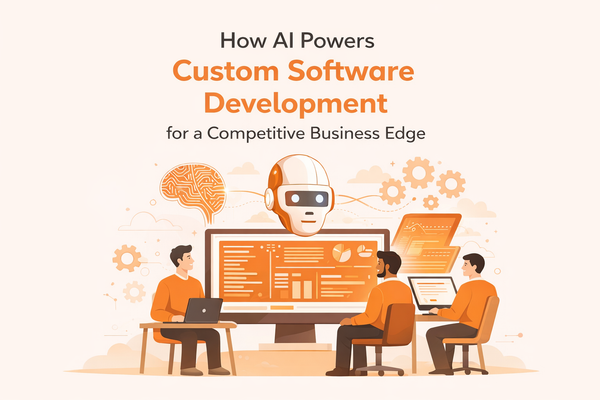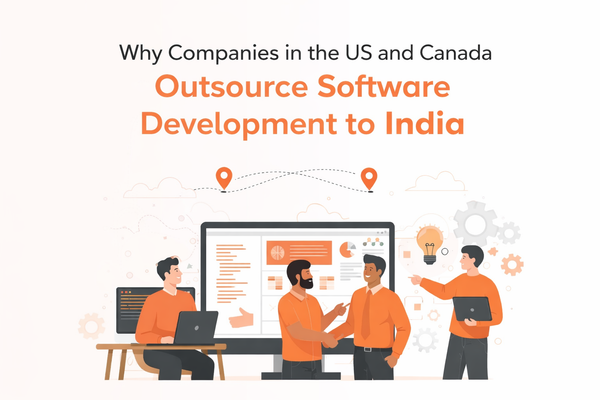Custom vs. off-the-shelf software. Which one is best for startups?

We all have been there, felt that uncertainty standing at the crossroads of a big decision, where the mind is often clouded by which approach to take when everything sounds promising and polished. Do we invest in a custom-built solution that fits like a glove, or settle for a budget-friendly off-the-shelf software? As behind the bells and whistles, one choice can define the entire success of the journey. When it comes to choosing software for your startup, the big decision usually comes down to two paths: custom-built solutions or off-the-shelf tools. Each has pros and cons, and the right fit depends on your budget, timeline, and how far you want to scale.
According to Gartner, global IT spending reached $4.6 trillion in 2023, showing a 5.5% increase from 2022. These numbers show the increasing importance of software for businesses of all sizes.
Custom software
Custom software involves creating applications specifically tailored to your exact requirements to match a particular business's needs. It stands out because its design is to have complete control and customisation from scratch. Such a development process aims to consider unique workflows or niche business growth requirements.
Pros of custom software Development
Tailored Solutions: Custom software is designed around your business goals, aligning perfectly with your unique workflows and day-to-day operations.
Scalability: As your business grows, your software grows with you, no need to start over or switch platforms.
Competitive Edge: Custom tools help you stand out by offering features your competitors don’t have.
Seamless Integration: It connects smoothly with your existing tools and systems, making your processes more efficient.
Ongoing Support: You get personalised updates, fixes, and enhancements from a team that understands your software inside out.
Cons of Custom Software Development:
Higher Initial Costs: Custom software can be more expensive upfront because of the time and resources needed to build it.
Longer Development Time: Building a custom solution requires more time, which may result in a delayed launch compared to ready-made options.
Complex Process: Developing custom software requires meticulous planning and management to ensure a seamless execution.
Off- the- shelf software
Pre-packaged or off-the-shelf software is the most cost-effective application that can be quickly deployed to meet the needs of a broad audience.This approach makes it more appealing, especially for startups needing to move fast or avoid the significant investment required to build software from scratch.
Pros of Off-the-Shelf Software
Lower Upfront Costs: Off-the-shelf solutions are typically more affordable, as the costs are shared across many users.
Quick Deployment: Since off-the-shelf software is pre-built, tested and ready to use, which means you can get up and running in no time.
Smooth Integration: Off-the-shelf solutions are designed to work seamlessly with widely used systems, making the integration process quicker and less complex.
Regular Updates: Pre-packed software typically receives regular updates and improvements, ensuring the system stays current, secure, and equipped with the latest features.
Cons of Off-the-Shelf Software
Limited customisation: It’s great for general needs, but not ideal if your business requires tailored features or unique workflows.
Scalability Limitations: As your business grows, off-the-shelf software might not keep up with more users or data, and you may end up needing extra tools to make it work.
Integration Challenges: Off-the-shelf software may not easily integrate with your existing systems, causing headaches.
Long-Term Costs: Recurring licensing fees, upgrades, and additional features can slowly add up over time, making it less cost-effective in the long run.
Conclusion
Businesses today need to go the extra mile to stand out in a crowd. To do this, you should invest in the best option that aligns with your business strategy and shows effective long-term results. All in all, when faced with the decision between custom software and off-the-shelf solutions, it’s crucial to look beyond short-term convenience. You need to picture your unique business need and long-term strategies, and ultimately, though, it should come down to a software’s purpose, each with far-reaching implications.
Let's create a custom solution that works for you!




